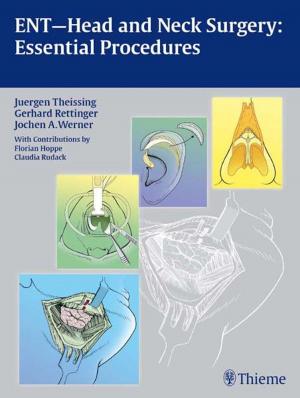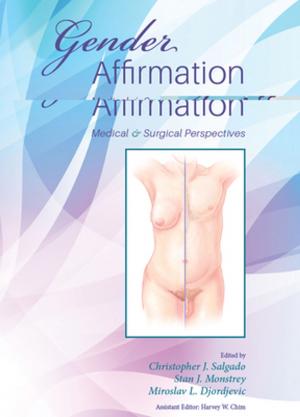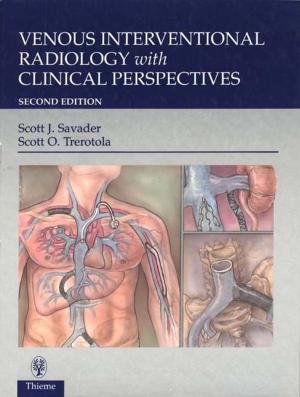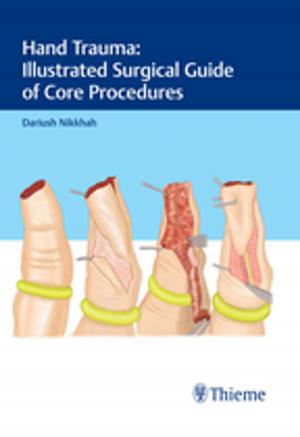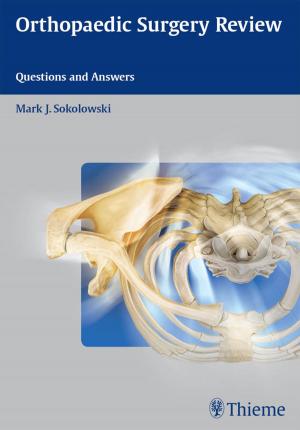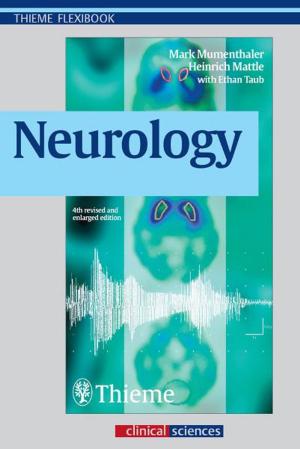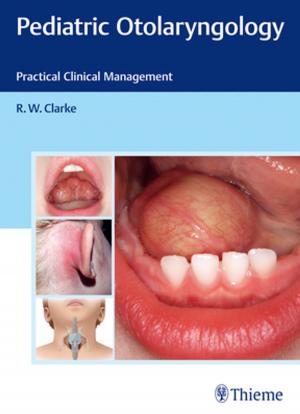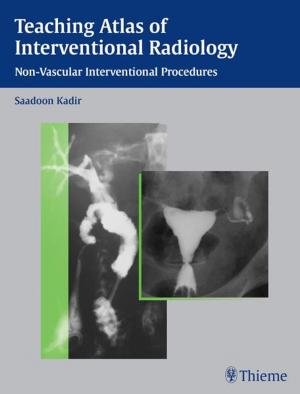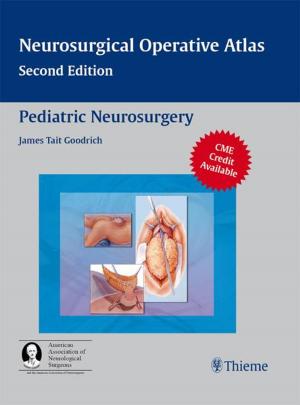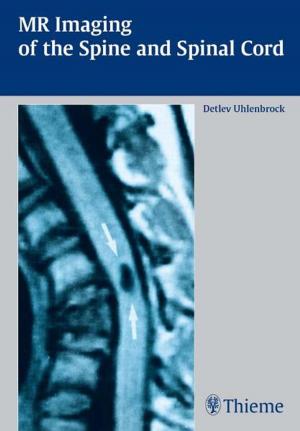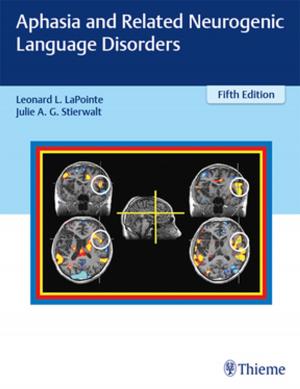Imaging for Otolaryngologists
Nonfiction, Health & Well Being, Medical, Specialties, Otorhinolaryngology, Radiology & Nuclear Medicine| Author: | Erwin A. Dunnebier | ISBN: | 9783131504913 |
| Publisher: | Thieme | Publication: | January 12, 2011 |
| Imprint: | Thieme | Language: | English |
| Author: | Erwin A. Dunnebier |
| ISBN: | 9783131504913 |
| Publisher: | Thieme |
| Publication: | January 12, 2011 |
| Imprint: | Thieme |
| Language: | English |
[It] is a great value and easy purchase for any resident or practing ENT specialists who will no doubt have occasion to reference it again and again. --Medical Science Books May 2011 It is a helpful guide that is easy to read.Doodys June 2011Imaging for Otolaryngologists distils the essentials of otolaryngologic imaging into a concise reference that concentrates on key topics that are of immediate interest to otolaryngologists practicing in a modern clinical environment.Prepared by a renowned otolaryngologist, and reviewed and supplemented by expert radiologists, the book provides a well-rounded perspective. The central focus is on image interpretation, including the disease-specific characteristics, the features necessary for successful diagnosis, and the implications for surgery. Each of the 465 high-quality images is clearly labeled, and where appropriate comparisons are made between CT scans and MR images to show complementary functions and limitations.All aspects of otolaryngologic imaging are covered, with a particular emphasis on anatomy, common diagnoses, and the choice of imaging modalities. The text is divided into four sections that guide the reader through the petrosal bone, skull base, sinonasal complex, and neck structures. Each section is consistently structured for easy reading: normal anatomy is followed by frequent/common diseases and then less frequent yet still instructive diseases. The presentation of each disease follows a standardized layout with concise explanatory text on how to choose the most appropriate imaging modality, potential differential diagnoses, and points of evaluation.Imaging for Otolaryngologists helps its readers:
Evaluate the cross-sectional anatomy in rhinology, otology, and laryngology on plain films, CT scans, and MR images
Appreciate the contribution and limitations of plain films, CT, and MRI in the management of otolaryngologic diseases
Select the best imaging modality for chronic, acute, and emergency otolaryngologic conditions
Understand which radiological appearances to look for in the diagnosis of common and less common otolaryngologic diseases
High print quality on glossy paper, at a bargain price, is what makes this such an attraactive atlas of radiology. This book is a great reference for the trainee; however, as an expert on ENT imaging, I too enjoyed it immensely.-- The Journal of Laryngology & Otology
[It] is a great value and easy purchase for any resident or practing ENT specialists who will no doubt have occasion to reference it again and again. --Medical Science Books May 2011 It is a helpful guide that is easy to read.Doodys June 2011Imaging for Otolaryngologists distils the essentials of otolaryngologic imaging into a concise reference that concentrates on key topics that are of immediate interest to otolaryngologists practicing in a modern clinical environment.Prepared by a renowned otolaryngologist, and reviewed and supplemented by expert radiologists, the book provides a well-rounded perspective. The central focus is on image interpretation, including the disease-specific characteristics, the features necessary for successful diagnosis, and the implications for surgery. Each of the 465 high-quality images is clearly labeled, and where appropriate comparisons are made between CT scans and MR images to show complementary functions and limitations.All aspects of otolaryngologic imaging are covered, with a particular emphasis on anatomy, common diagnoses, and the choice of imaging modalities. The text is divided into four sections that guide the reader through the petrosal bone, skull base, sinonasal complex, and neck structures. Each section is consistently structured for easy reading: normal anatomy is followed by frequent/common diseases and then less frequent yet still instructive diseases. The presentation of each disease follows a standardized layout with concise explanatory text on how to choose the most appropriate imaging modality, potential differential diagnoses, and points of evaluation.Imaging for Otolaryngologists helps its readers:
Evaluate the cross-sectional anatomy in rhinology, otology, and laryngology on plain films, CT scans, and MR images
Appreciate the contribution and limitations of plain films, CT, and MRI in the management of otolaryngologic diseases
Select the best imaging modality for chronic, acute, and emergency otolaryngologic conditions
Understand which radiological appearances to look for in the diagnosis of common and less common otolaryngologic diseases
High print quality on glossy paper, at a bargain price, is what makes this such an attraactive atlas of radiology. This book is a great reference for the trainee; however, as an expert on ENT imaging, I too enjoyed it immensely.-- The Journal of Laryngology & Otology

